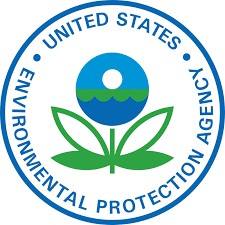Resource Details
Business, Sustainability, Workforce
EPA Brownfields Revolving Loan Fund (RLF) Grants
Revolving Loan Fund (RLF) Grants provide funding for a grant recipient to capitalize a revolving loan fund and to provide loans and subgrants to carry out cleanup activities at brownfield sites. Through these grants, EPA strengthens the marketplace and encourages stakeholders to leverage resources to clean up and redevelop brownfields. When loans are repaid, the loan amount is returned to the fund and re-lent to other borrowers, providing an ongoing source of capital within a community.
An eligible RLF Grant applicant may apply as an individual entity or as an RLF Coalition comprised of two or more entities. Funds may be used to address brownfield sites contaminated by hazardous substances, pollutants, contaminants (including hazardous substances co-mingled with petroleum), and/or petroleum.
Some key features of RLF Grants include:
RLF programs are designed to operate for many years (possibly decades) and as such, the terms and conditions of cooperative agreements require long-term resource commitments by the RLF Grant recipient. In addition, grant recipients are expected to comply with certain reporting requirements, even after the RLF Grant is closed.
Recipients need to have a strong understanding of real estate financing principles and approaches, including loan underwriting, loan servicing, and credit analysis.
Recipients need to have the ability to market the RLF program on an on-going basis during the performance period of the grant, and after the close out of the RLF Grant.
Recipients commit to properly manage the program income generated by their RLF program in perpetuity, unless they terminate the agreement and return the program income to EPA (see RLF Closeout Resources below).
Eligibility
Eligible entities include:
General Purpose Unit of Local Government.
Land Clearance Authority or another quasi-governmental entity that operates under the supervision and control of, or as an agent of, a general purpose unit of local government.
Government Entity Created by State Legislature.
Regional Council or group of General Purpose Units of Local Government.
Redevelopment Agency that is chartered or otherwise sanctioned by a state.
State.
Indian tribe other than in Alaska.
Alaska Native Regional Corporation, Alaska Native Village Corporation, and Metlakatla Indian Community.
Nonprofit organizations with 501(c)(3) status.
Limited liability corporation in which all managing members and/or general partners are 501(c)(3) nonprofit organizations or limited liability corporations whose sole members are 501(c)(3) nonprofit organizations.
Qualified community development entity.
Other nonprofit organizations.
Workforce Investment Boards and organized Labor Unions.
Public and nonprofit private educational institutions.
Related Resources
Wisconsin Cooperative Development Grant
Wisconsin Economic Development Corporation
Arts & Culture, Child Care, Energy, Forestry & Paper, Native Peoples, Transportation, Workforce
The Wisconsin Economic Development Corporation (WEDC) is offering grants to support the development of new and existing cooperatives in Wisconsin, with a goal of fostering the success of current and future cooperatives by supporting planning and exploratory research in advance of making a large investment.




